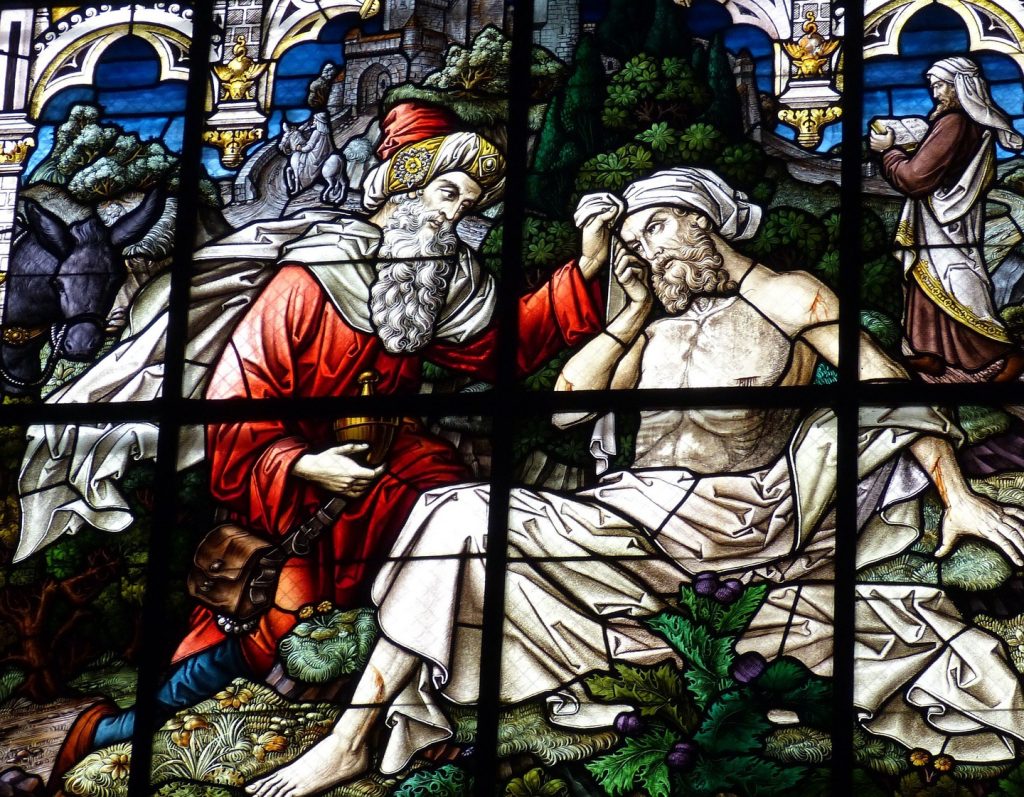
“While he was saying this, a ruler came and knelt before him and said, “My daughter has just died. But come and put your hand on her, and she will live.”
The context of this request is that Jesus has recently exited Matthew’ house, where Matthew and his friends were celebrating Matthew’s new decision to follow Jesus. No doubt much worthwhile conversation had been happening with Matthew’s invited guests, but at some point Jesus was interrupted by a question about the value of eating with ‘sinners’. The Pharisees had asked that question – unwilling to enter a house of feasting during a fast day, they had asked it through His disciples. Consequently, Jesus addressed the question to those present.
When Jesus exited the house (possibly to look for the Pharisees so He could respond to their faces), John’s disciples came and also asked Him a question. Their question was along the same lines – that is, why Jesus and His band were feasting while the rest of religious society was fasting? Jesus had begun His explanation by means of a couple of parables. Like all His parables, they are deep, full of meaning and application.
But before He can expound on what He meant, and before they can ask further questions about what it means, they are interrupted by a man of some importance. This man – a local ruler -makes his interruption into a bigger scene by bowing down before Jesus in front of all gathered there. Jesus will have to respond.
Three interruptions, back to back.
Ministry is often a series of interruptions arising from a single act of obedience. Jesus called Matthew, then went to one place (Matthew’s house) expecting something (a party), but while He was there another thing happened (the Pharisees’ question), and He had to respond. While He was responding to that, something else happened (John’s disciples’ question), and now He must respond to that. Yet while He responds to that, something else happens (the ruler’s request).
Jesus’ composure through it all is a sight to behold. He doesn’t seem perturbed or flustered by the compounding of intrusions. He takes each disruption as a signal to move on to the next thing instead of a frustration to His own timeline. He knows that each interruption is another opportunity for the Kingdom of God to grow. They all build on each other – some who were there for the last ministry moment will carry on to the next, and in this way many are ministered to. He also knows that each opportunity – each interruption – is timed by the Father. Timed to demonstrate not only His wisdom, but His patience and His grace. As He takes each with patience and grace, the Father is revealed to the every growing crowd of those watching and listening to Him.
He does this all because Jesus is about the Father’s business in the Father’s timing. So there is nothing to be upset about, though from a human viewpoint frustration and exasperation would be the order of the day.
Every intrusion is an opportunity to bless those made in His image. Such is the life we are called to. It is a wonderful life, because every interruption we encounter for His sake is another opportunity to see His wisdom and His grace and His power working through us. It is an opportunity to see His Kingdom expand. It is an opportunity to remember that God is in control and sovereign over all things, and we are not.
Amen.
Interruptions are not irritants; they are part of the rhythm of life. Rigid adherence to schedules is not valued, because it reduces people to little more than blocks of time.
A. Scott Moreau
APPLICATION: Intentionality
In all likelihood, today at some point you will be interrupted. Remember how Jesus responded.










